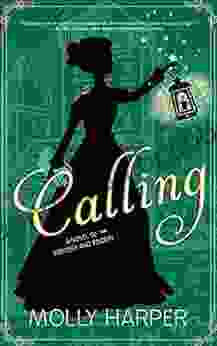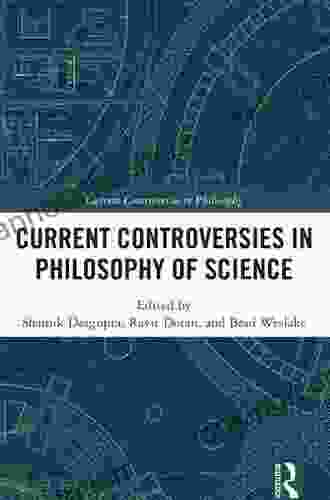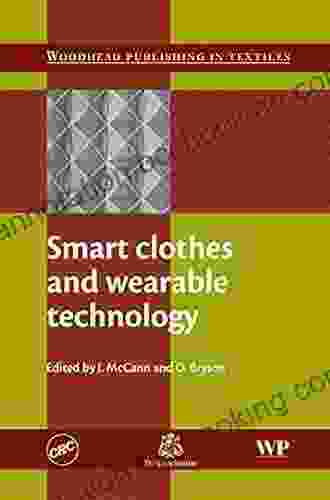Current Controversies in Philosophy of Science: Exploring the Foundations of Scientific Inquiry

Science, as an essential pillar of modern society, has witnessed remarkable advancements that have shaped our understanding of the world around us. Yet, at the heart of these scientific endeavors lie fundamental questions regarding the nature of science itself. The field of philosophy of science endeavors to unravel these complexities, addressing a myriad of controversial issues that spark intellectual debate and fuel our quest for deeper knowledge.
The Epistemological Foundation of Science: Unveiling the Nature of Scientific Knowledge

4.7 out of 5
| Language | : | English |
| File size | : | 21360 KB |
| Screen Reader | : | Supported |
| Print length | : | 212 pages |
At the core of philosophy of science lies the exploration of the epistemological underpinnings of scientific knowledge. Epistemology, the study of knowledge, delves into the nature, sources, and limitations of human understanding. In the realm of science, epistemological debates revolve around the foundations of scientific knowledge, its objectivity, and the role of evidence in shaping our scientific beliefs.
- Empiricism vs. Rationalism: A longstanding debate that pits empiricism, emphasizing the role of experience and observation, against rationalism, which highlights the importance of reason and logic in scientific inquiry.
- Scientific Realism vs. Anti-Realism: A controversy centered on the ontological status of scientific theories. Scientific realists contend that scientific theories describe an objective reality, while anti-realists assert that these theories are merely models or useful fictions.
- Theory-Ladenness of Observation: A challenge to the traditional view of observation as a neutral and objective process, recognizing the influence of theoretical frameworks on our interpretations of empirical data.
The Methodology of Science: Unraveling the Process of Scientific Discovery
Philosophy of science also grapples with the crucial issue of scientific methodology, examining the principles and practices that guide scientists in their pursuit of knowledge. Methodological debates focus on the nature of scientific inquiry, the role of experimentation, and the criteria for evaluating scientific theories.
- Induction vs. Deduction: A fundamental debate that explores the logical basis of scientific inference. Inductivists argue that scientific knowledge arises from the generalization of empirical observations, while deductivists maintain that scientific theories are derived from first principles.
- Experimentation and Hypothesis Testing: A central aspect of scientific methodology, involving the design and execution of experiments to test hypotheses and refine our understanding of the world.
- Falsifiability and Verification: Controversial criteria for evaluating scientific theories. Falsifiability, as proposed by Karl Popper, emphasizes the ability to disprove a theory, while verification remains an elusive goal for many scientific claims.
The Social and Cultural Dimensions of Science: Acknowledging the Human Element
Contemporary philosophy of science recognizes the significant role that social and cultural factors play in shaping scientific inquiry. This perspective challenges the traditional image of science as a purely objective and value-free enterprise, highlighting the influence of social structures, cultural biases, and historical contexts on scientific practices and outcomes.
- Science and Society: An exploration of the complex relationship between scientific advancements and societal values, including the ethical implications of scientific research and the role of science in shaping public policy.
- Scientific Objectivity: A critical examination of the notion of scientific objectivity, questioning the extent to which personal biases, cultural influences, and social pressures can compromise the impartiality of scientific inquiry.
- Science and Power: A recognition of the political and economic forces that can shape the direction of scientific research and the dissemination of scientific knowledge.
Emerging Frontiers in Philosophy of Science: Pushing the Boundaries of Inquiry
The field of philosophy of science is constantly evolving, with new controversies and challenges emerging at the forefront of scientific research. These emerging frontiers push the boundaries of our understanding, opening up exciting avenues for philosophical exploration.
- Philosophy of Big Data: The rise of big data and artificial intelligence raises questions about the nature of scientific evidence, the role of human interpretation, and the potential for algorithmic bias in scientific analysis.
- Philosophy of Replication: The importance of replicating scientific studies to verify their results has sparked philosophical debates about the nature of scientific progress, the role of trust in science, and the challenges of identifying and addressing scientific misconduct.
- Philosophy of Neuroscience: Rapid advancements in neuroscience are leading to new insights into the nature of consciousness, the relationship between mind and body, and the limits of scientific reductionism.
: Embracing the Complexity of Scientific Inquiry
The controversies that animate the field of philosophy of science are a testament to the complexity and vitality of scientific inquiry. By exploring these controversies, we deepen our understanding of the nature of science, the process of scientific discovery, and the intricate relationship between science and society. Recognizing the limitations of our knowledge and embracing the ongoing debates, we empower ourselves to engage critically with scientific claims, make informed decisions, and navigate the ever-changing landscape of scientific advancements.
Through its rigorous inquiry, philosophy of science continues to challenge our assumptions, push the boundaries of our understanding, and ultimately guide us towards a more profound appreciation of the scientific enterprise. By delving into these controversies, we embark on a journey towards a more enlightened and scientifically literate society.
4.7 out of 5
| Language | : | English |
| File size | : | 21360 KB |
| Screen Reader | : | Supported |
| Print length | : | 212 pages |
Do you want to contribute by writing guest posts on this blog?
Please contact us and send us a resume of previous articles that you have written.
 Book
Book Novel
Novel Page
Page Chapter
Chapter Text
Text Story
Story Genre
Genre Reader
Reader Library
Library Paperback
Paperback E-book
E-book Magazine
Magazine Newspaper
Newspaper Paragraph
Paragraph Sentence
Sentence Bookmark
Bookmark Shelf
Shelf Glossary
Glossary Bibliography
Bibliography Foreword
Foreword Preface
Preface Synopsis
Synopsis Annotation
Annotation Footnote
Footnote Manuscript
Manuscript Scroll
Scroll Codex
Codex Tome
Tome Bestseller
Bestseller Classics
Classics Library card
Library card Narrative
Narrative Biography
Biography Autobiography
Autobiography Memoir
Memoir Reference
Reference Encyclopedia
Encyclopedia Aviva Klompas
Aviva Klompas Arundhati Roy
Arundhati Roy Carey Gillam
Carey Gillam Steve Alpert
Steve Alpert Adam Silvera
Adam Silvera Jean Guerrero
Jean Guerrero Sue Feldman
Sue Feldman J M Thompson
J M Thompson Clydebank Business
Clydebank Business John Huggan
John Huggan Rajani Larocca
Rajani Larocca Lara Shannon
Lara Shannon Asa
Asa John Smith
John Smith Jane Kurtz
Jane Kurtz Rusty Ferguson
Rusty Ferguson G Neri
G Neri Bianca Toeps
Bianca Toeps Olivia Seltzer
Olivia Seltzer Lajos Egri
Lajos Egri
Light bulbAdvertise smarter! Our strategic ad space ensures maximum exposure. Reserve your spot today!

 Ibrahim BlairUnlocking Effective Cognitive Behavior Therapy: A Comprehensive Guide to the...
Ibrahim BlairUnlocking Effective Cognitive Behavior Therapy: A Comprehensive Guide to the... Chinua AchebeFollow ·11.7k
Chinua AchebeFollow ·11.7k Vincent MitchellFollow ·16.3k
Vincent MitchellFollow ·16.3k Glen PowellFollow ·15.9k
Glen PowellFollow ·15.9k John GrishamFollow ·4.7k
John GrishamFollow ·4.7k Enrique BlairFollow ·11.4k
Enrique BlairFollow ·11.4k Brian BellFollow ·16.4k
Brian BellFollow ·16.4k Yasushi InoueFollow ·8.5k
Yasushi InoueFollow ·8.5k Curtis StewartFollow ·15.2k
Curtis StewartFollow ·15.2k

 Voltaire
VoltaireStories From The Jim Crow Museum: Unveiling the Haunting...
A Journey into the Depths of...

 F. Scott Fitzgerald
F. Scott FitzgeraldCalling Sorcery And Society: Illuminating the...
: The Alluring Embrace of Sorcery ...

 Marcel Proust
Marcel ProustBranding Bud: Unveiling the Green Rush
As the legalization...

 Henry Wadsworth Longfellow
Henry Wadsworth LongfellowColorful Dreamer: The Story of Artist Henri Matisse
Henri Matisse was a French artist...

 Adrian Ward
Adrian WardDelving into the Tapestry of Black British Identity: A...
In the realm of historical...
4.7 out of 5
| Language | : | English |
| File size | : | 21360 KB |
| Screen Reader | : | Supported |
| Print length | : | 212 pages |












